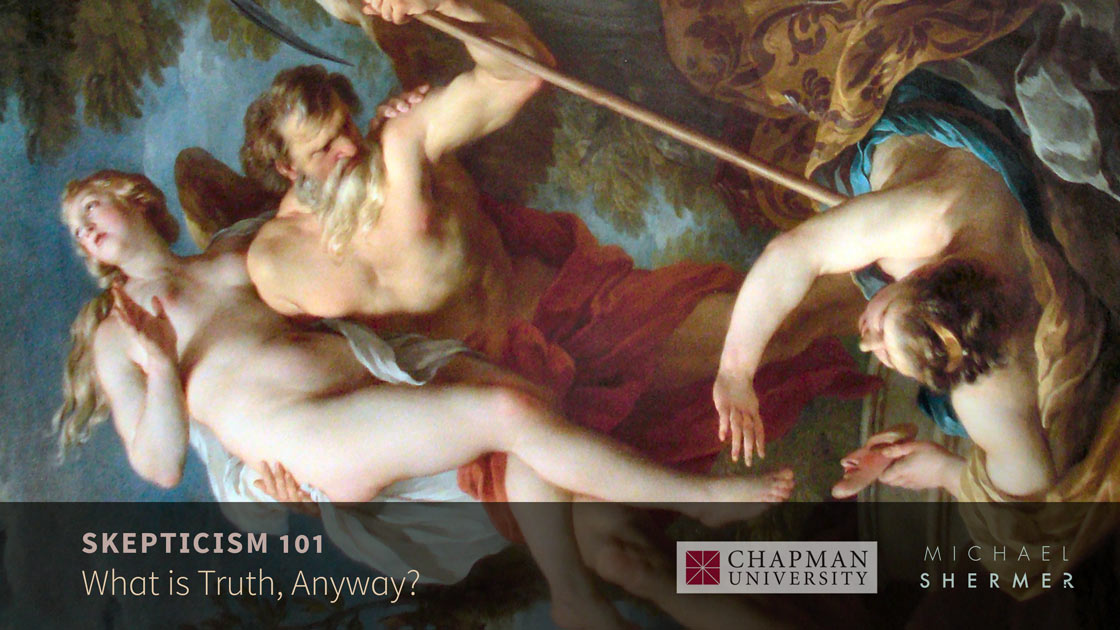In this lecture Dr. Michael Shermer addresses one of the deepest questions of all: what is truth? How do we know what is true, untrue, or uncertain? Given that none of us are omniscient, all claims to knowledge carry a certain level of uncertainty. Given that fact, how can we determine what is true? Included: subjective/internal vs. objective/external truths, Hume’s theory of causality, correlation and causation, the principle of proportionality (or why extraordinary claims require extraordinary evidence), how to think about miracles and the resurrection, mysterian mysteries, post-truth, rational irrationalities, the man who saved the world, Bayesian reasoning, and why love depends on evidence.
Skepticism 101: How to Think Like a Scientist covers a wide range of topics, from critical thinking, reasoning, rationality, cognitive biases and how thinking goes wrong, and the scientific methods, to actual claims and whether or not there is any truth to them, e.g., ESP, ETIs, UFOs, astrology, channelling, psychics, creationism, Holocaust denial, and especially conspiracy theories and how to think about them.
If you missed Dr. Shermer’s previous Skepticism 101 lectures watch them now.
Resource type: all videos • powerpoint and keynote presentations
Academic discipline: freshman foundation and general education
Academic level: college and university









